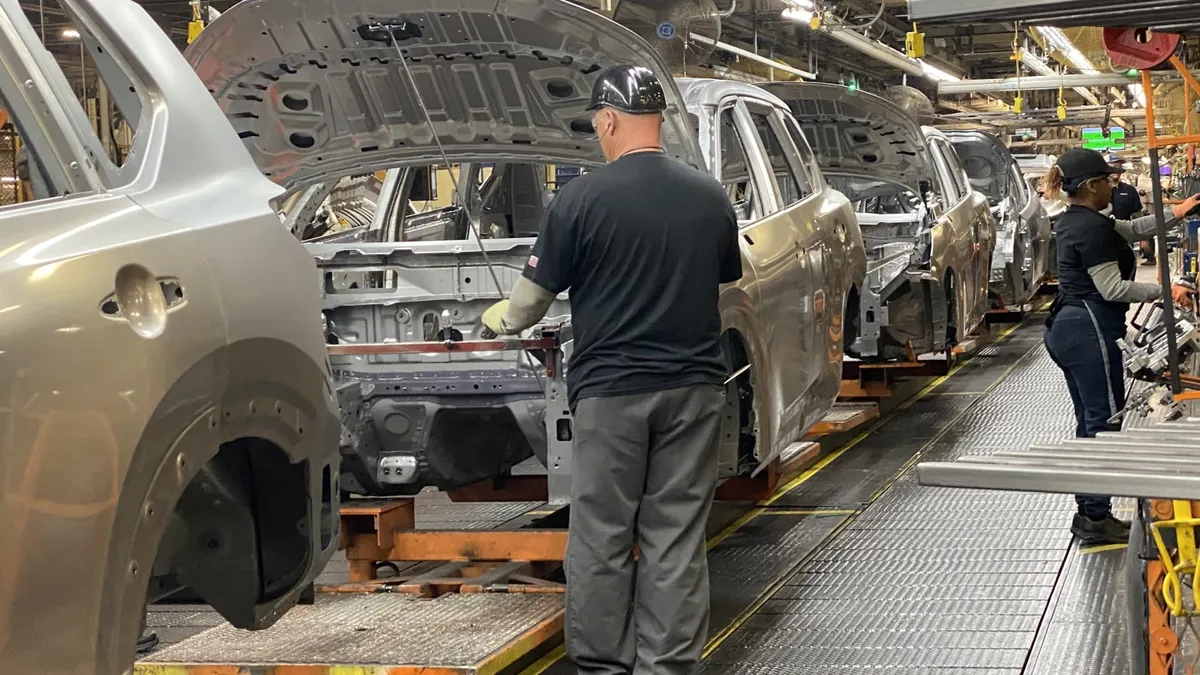
As President Donald Trump's 25% tariffs on imported vehicles remain in effect, the automotive industry faces significant global implications. Despite a recent pullback on other country-based levies, analysts predict that these tariffs will lead to a dramatic decline in vehicle sales, with estimates suggesting millions of fewer vehicles sold. Furthermore, the costs associated with these tariffs could exceed $100 billion, according to various research reports from Wall Street and automotive analysts.
Felix Stellmaszek, the global lead of automotive and mobility at the Boston Consulting Group (BCG), highlighted the structural shift driven by these policies. "This may well be the most consequential year for the auto industry in history," Stellmaszek stated. The current situation is not only about immediate cost pressures but is also catalyzing fundamental changes in how and where vehicles are manufactured. BCG projects that the tariffs could add between $110 billion and $160 billion annually to the automotive industry's operating costs, potentially affecting 20% of new vehicle market revenues in the U.S.
The Center for Automotive Research, a nonprofit think tank based in Michigan, estimates that costs for U.S. automakers will increase by approximately $107.7 billion. This figure includes $41.9 billion specifically for major Detroit automakers like General Motors, Ford Motor, and Chrysler's parent company, Stellantis. These analyses take into account the 25% tariffs on imported vehicles that were implemented on April 3, along with additional levies on automotive parts projected to begin by May 3.
While automakers and suppliers might absorb some of the cost increases, analysts suggest that they will likely pass a significant portion of these costs onto U.S. consumers. According to Goldman Sachs analyst Mark Delaney, the proposed tariffs could raise the cost of both importing and manufacturing vehicles in the U.S. by an average of $1,000 to $5,000. Delaney noted that new vehicle net prices in the U.S. might rise by approximately $2,000 to $4,000 over the next six to twelve months as manufacturers adjust to the new tariff costs.
In response to these tariffs, automakers have adopted various strategies. Domestic manufacturers like Ford and Stellantis have introduced temporary employee pricing deals, while foreign manufacturers such as Jaguar Land Rover have halted U.S. shipments. Meanwhile, Hyundai Motor has committed to keeping prices stable for at least two months to alleviate consumer concerns.
Consumer sentiment has worsened more than expected, with inflation levels reaching their highest point since 1981, according to a recent University of Michigan survey. Sam Abuelsamid, vice president of insights at auto advisory firm Telemetry, anticipates that many automakers have a two-month supply of vehicles that are not affected by tariffs, which they will sell down before needing to raise prices. Telemetry estimates that the increased production costs and other factors could lead to a reduction of over 2 million vehicles sold annually in the U.S. and Canada, which could have a cascading effect on the broader economy.
The affordability of new and used vehicles has been a persistent issue, with the average price of new vehicles nearing $50,000. This price does not account for the rising costs of financing, which have surged in recent years due to inflation. Current auto loan rates are hovering near decades-high levels, exceeding 9.64% for new vehicles and nearly 15% for used cars and trucks, according to Cox Automotive.
Experts expect that as tariffs are implemented and supply tightens, there will be a decline in discounts and an acceleration of price increases. Jonathan Smoke, Cox Automotive's Chief Economist, indicated that they foresee a decline in production and sales, an increase in new and used vehicle prices, and even the elimination of certain models. Cox estimates an increase of $6,000 for imported vehicles due to the tariffs, along with an additional $3,600 increase for U.S.-assembled vehicles as a result of the forthcoming tariffs on automotive parts.